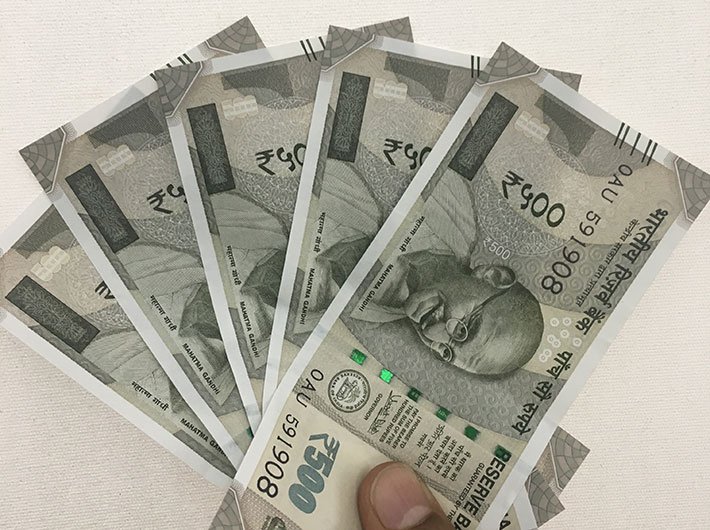From rolling out the GST and the likelihood of India entering the elite NSG club to assembly elections in Uttar Pradesh and Punjab, India will have a lot on its plate in the coming year
The year 2017 will see India roll out the Goods and Services Tax (GST), the country’s biggest indirect tax reforms. The target date is April 1, but it could be pushed back. GST is essentially a comprehensive indirect tax on manufacture, sale and consumption of goods and services across the country and it replace taxes levied by the central and state governments.
The GST bill had a difficult journey. The budget of 2006-07 had announced GST by April 1, 2010. An empowered committee of state finance ministers, headed by the then West Bengal finance minister Asim Dasgupta, had submitted report to the central government in April 2008. The introduction of a single indirect tax regime across the country will be a significant development. South Asia is expected to be the fastest growing sub-region, led by India.
Also read: The flawed premises of GST
The impact of demonetisation too will be known in 2017. The question remains whether things will stabilise as the new year is ushered in, or people will be forced to stand in serpentine queues to get their money.
A major milestone which India hopes to achieve in the coming year is to get admission into the elite Nuclear Suppliers Group (NSG) club. India had got tremendous support for its NSG bid and had even come tantalizingly close to making it. However, China proved to be stumbling block. China has been leading the opposition against India, but New Delhi is hopeful that it will be able to bring over Beijing on to its side.
The NSG was formed following India’s nuclear tests of 1974. Canada, then West Germany, France, Japan, the USSR, the UK, and the US launched the NSG and prepared a list of technologies that they would not export to countries which had not signed the nuclear non-proliferation treaty (NPT). India wants to be a part of the NSG, without inking the NPT, which it describes as discriminatory.
Also read: Primer: Making sense of the NSG muddle
India may well redouble its effort to ensure that Jaish-e-Mohammad chief Masood Azhar is declared UN-designated terrorist. In this case, China twice blocked India’s bid. First in April and then again in October. Azhar is responsible for several terror attacks in India including the 2001 attack on India’s parliament as well as the 2016 attack on the Pathankot airbase.
New Delhi will also have to take on Islamabad with regard to the Indus Water Treaty. As late as December 28 this year, World Bank president Jim Yong Kim telephonically spoke to Pakistani finance minister Ishaq Dar. The latest water dispute between Pakistan and India was concerning two hydroelectric power plants -- Kishanganga and Ratle. The coming year is likely to see Pakistan queering the pitch for India on this water treaty.
What caused considerable anxiety in Pakistan was prime minister Narendra Modi’s statement that the waters of Sutlej, Beas and Ravi rivers that rightfully belong to India will be stopped from going waste in Pakistan and he will ensure that farmers here utilise it.
"Indus Water Treaty — Sutlej, Beas, Ravi — the waters in these rivers belong to India and our farmers. It is not being used in the fields of Pakistan but flowing into the sea through Pakistan. Now every drop of this water will be stopped and I will give that to farmers of Punjab and Jammu and Kashmir and Indian farmers. I am committed to this," he said.
The fate of South Asian Association for Regional Cooperation (SAARC) too hangs in balance and the status of the grouping would become clear in the coming year. Pakistan was scheduled to host the 19th SAARC summit, but India, Afghanistan, Bhutan, Bangladesh, Sri Lanka and Maldives refused to participate following the terror attack in Uri.
Elections in Uttar Pradesh and Punjab are also scheduled for the coming year. The Samajwadi Party, which has witnessed bitter infighting, will be hoping to retain its hold on the 403-member assembly. But Mayawati led Bahujan Samaj Party and the Bharatiya Janata Party are both hoping to do well. The Congress, which has fielded an ageing Sheila Dikshit, is too in the fray.
Punjab is going to see intense politicking, with Arvind Kejriwal led Aam Aadmi Party hoping to repeat its Delhi magic. The Congress is quite hopeful that it will be able oust the Badals. Parkash Singh Badal and his son Sukhbir Singh Badal have ruled the state for over a decade.
Also read: [The Badals] have destroyed the state of Punjab: Amarinder Singh
What happens in Tamil Nadu will also be interesting. Now that Sasikala has been anointed the leader of the AIADMK, following the death of J Jayalalithaa, it is not quite clear whether O Panneerselvam will continue to be the chief minister of Tamil Nadu. Sasikala could well take over. But, that too will be known in 2017.
There’s a lot more. All said and done, the year 2017 will be most certainly won’t be a dull year for India.

